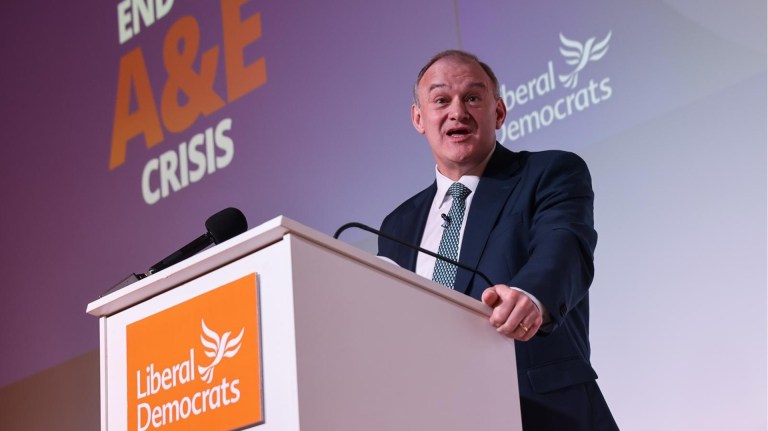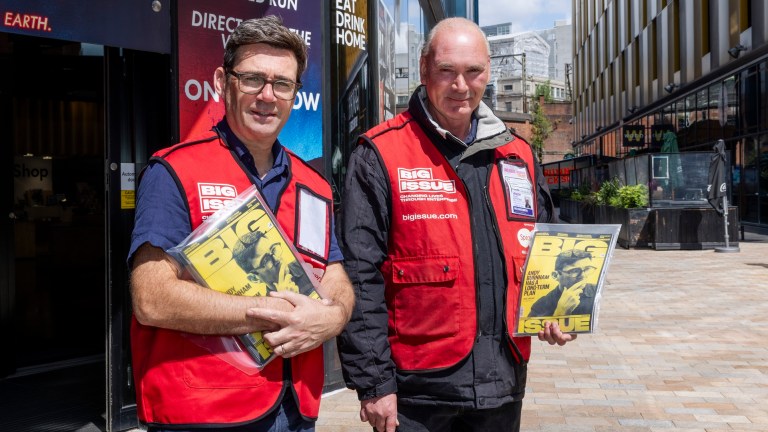He added: “What that means is people from these backgrounds have a louder voice in our democracy, in the most essential form of democratic participation. Policy is going to be more responsive to their needs, their interests, and their preferences. We’ve seen that’s broadly the case over the past 20 years: Why have we allowed housing to become so unaffordable and locked a generation out of that? Why do we protect social security for pensioners more than we protect social security for working age people?”
‘Young people seem sceptical about whether voting makes a difference’
Before the election, the Big Issue reported expert predictions that poverty and a lack of meaningful choice on offer would lead to a low election turnout.
For young people, the explanations are easy to find, said Banseka Kayembe, the director and founder of Naked Politics, a media platform working to reduce political apathy amongst young people.
“Many young people seem sceptical about whether voting in particular makes a difference. Young Labour voters seemed despondent with their party on certain positions such as climate change or foreign policy. There were also young people we spoke to Clacton-on-Sea who were very apathetic and felt like politics didn’t mean much to them,” Kayembe, who spent the run-up to general election campaign working in schools to get young people engaged with politics, told the Big Issue.
More than half of young families live with their parents, and young people are half as likely to own their own home as they were 30 years ago. One in six live in poor-quality housing, research by the Resolution Foundation discovered in 2023.
“Many young people we spoke to feel like a lot of the mainstream parties’ policies simply didn’t speak to them or their life experiences. Young people are increasingly a distinct political group, in a way in which a few decades ago they simply aren’t,” said Kayembe.
“The reason is because their material circumstances compared to more recent generations have gotten worse. Getting housing security, job security, an inexpensive education are not easily attainable. It’s highly likely that, despite there being some fairly ambitious high-level campaigns to get the youth vote up during this election, young people simply felt there wasn’t much worth voting for.”
But Kayembe said there was hope, and a way to reverse the trend, with significant interest in community organising.
“From climate change to antiracism, there has been a high uptake of young people in wider campaigns for political change. It is possible some young people see this as more effective at creating long-term political change than ticking a box on a ballot paper. It shouldn’t be forgotten that young people are still engaging in democracy in other ways,” said Kayembe.
‘Young people feel misrepresented and demonised’
Along with issues in politics and policy, young people have been put off by the way they are spoken to and about in the media, said James Dennis, a senior lecturer in political communication and journalism at the University of Portsmouth who interviewed young people in the run-up to the election
“Beyond the structural issues that prevent them from voting, such as voter ID rules that disproportionately impact these communities, many of the young people I spoke to felt frustrated by the lack of representation of issues that matter to them in the electoral discourse,” Dennis told the Big Issue, adding he wasn’t surprised by low election turnout among the young.
“When young people and marginalised communities were addressed, they felt misrepresented and sometimes demonised, especially in tabloid media. Interviewees do not see themselves, their experiences, and their communities represented in this reporting and – more broadly – public discourse.”
Do you have a story to tell or opinions to share about this? Get in touch and tell us more. Big Issue exists to give homeless and marginalised people the opportunity to earn an income. To support our work buy a copy of the magazine or get the app from the App Store or Google Play.









